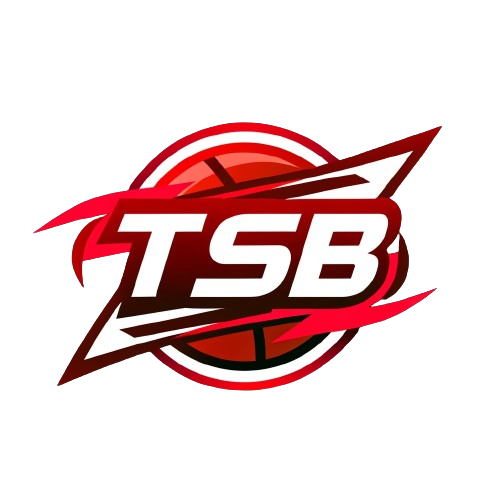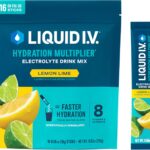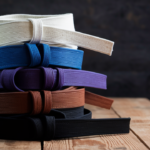How to Become a Pro Basketball Player? Becoming a professional basketball player takes more than just a love for the game; it demands dedication, hard work, and strategy. You’ll need to master core skills like dribbling, shooting, and defense, along with strength training and agility work. Competitive experience and getting noticed by scouts are crucial. Mental toughness is key, too, including building basketball IQ, resilience, and confidence. Whether you’re young and aspiring or pursuing the dream later in life, this article offers expert advice and steps to help you achieve your basketball aspirations. Let’s dive into the essential tips you need to know.
- Advertisement -

How to Become a Pro Basketball Player
Mastering the Fundamentals
Mastering the fundamentals of basketball is crucial for any aspiring professional player. These core skills form the foundation upon which more advanced techniques are built. Let’s explore the key fundamentals:
Dribbling:
Dribbling is a fundamental skill that allows players to move with the ball and create scoring opportunities. To improve dribbling:
- Advertisement -
- Use your fingertips, not your palms, to control the ball
- Keep your head up and eyes forward to survey the court
- Snap your wrist with a flexible bend for better ball control
- Extend your elbow while dribbling for efficient movement
- Practice various dribbling techniques like crossovers, behind-the-back, and between-the-legs moves to change directions and evade defenders
NBA legend Isiah Thomas emphasizes the importance of proper body alignment when dribbling. Maintain a stance with feet shoulder-width apart, knees slightly bent, and body weight evenly distributed.
Shooting:
Accurate shooting is essential for scoring points. Focus on:
- Advertisement -
- Proper form: Align your feet, hips, and shoulders towards the basket
- Follow-through: Release the ball with a smooth motion, extending your shooting arm fully
- Repetition: Practice shooting from various distances and angles to build muscle memory
Passing:
Effective passing creates scoring opportunities for teammates. Key aspects include:
- Vision: Keep your head up to spot open teammates
- Accuracy: Deliver the ball to where your teammate will be, not where they are
- Variety: Master different types of passes (chest pass, bounce pass, overhead pass)
Defense:
Strong defensive skills are crucial for preventing opponents from scoring. Focus on:
- Proper stance: Stay low with your feet shoulder-width apart
- Lateral movement: Practice quick side-to-side movements to stay in front of opponents
- Communication: Talk with teammates to coordinate defensive efforts
Rebounding:
Securing rebounds gives your team additional possessions. To improve rebounding:
- Box out: Use your body to prevent opponents from getting to the ball
- Timing: Jump at the right moment to grab the ball at its highest point
- Positioning: Anticipate where the ball will go off missed shots
Remember, mastering these fundamentals requires consistent practice and dedication. As NBA legend Isiah Thomas advises, focus on perfecting the basics before moving on to more advanced techniques. Regular practice of these core skills will provide a strong foundation for your basketball career.

Building Physical Fitness
Building physical fitness is crucial for basketball players to perform at their best on the court. A comprehensive training program should include strength training, cardiovascular conditioning, and agility and speed work.
Strength Training:
Strength training is essential for basketball players to improve their power, explosiveness, and overall performance. Key exercises include:
- Single Leg Squat: This exercise targets multiple lower body muscle groups and improves balance and stability. It’s particularly beneficial for taller players, helping to counteract the increased demands on their lower body.
- Dumbbell Military Press: This exercise builds overhead stability, crucial for shooting, passing, and blocking. Perform sets of 7-9 repetitions during an absolute strength phase to maximize muscle force production.
- Hang Power Clean: This Olympic lift develops explosive power, essential for jumping and quick movements on the court.
- Squats and Lunges: These exercises build leg strength, which is critical for shooting, rebounding, and playing defense.
Cardiovascular Training:
Basketball requires a high level of cardiovascular fitness. Players should focus on:
- High-Intensity Interval Training (HIIT): This type of training mimics the stop-and-start nature of basketball, making it an ideal conditioning tool.
- Court Sprints: The “10-in-1 drill” involves sprinting from one baseline to the opposite baseline and back, repeating five times. This improves straight-line speed and endurance.
- Zig-zag Drills: Place cones in a zig-zag pattern across the court and sprint between them, changing direction at each cone. This enhances speed in changing directions.
Agility and Speed:
Agility and speed are crucial for basketball players to outmaneuver opponents. Key drills include:
- Lateral Quickness Drills: These improve side-to-side speed, essential for defensive maneuvers. A simple drill involves shuffling across the key as quickly as possible.
- Reaction Drills: The ‘Mirror Drill,’ where you attempt to mirror a partner’s movements on the court, can enhance reaction time and speed.
- Plyometric Training: Exercises like jump squats and single-leg hops improve leg strength and explosiveness.
Steady-state cardio is not the main focus for improving basketball performance. High-intensity exercises are more effective for stamina, speed, and explosiveness. Proper nutrition with carbohydrates and protein is important. Fruits and vegetables should be included. Physical fitness reduces injury risk and improves overall health. Regular activity benefits mental health too, reducing anxiety, depression, and stress while improving sleep and concentration.
Joining a Team and Playing Competitively
Joining a basketball team and playing competitively is a crucial step in developing your skills and gaining exposure as an aspiring professional player. There are several avenues to explore, including school teams, local leagues, and specialized camps and clinics.School Teams:
Participating in school basketball teams provides a structured environment for skill development and competitive play.
Benefits include:
- Regular practice sessions and games
- Coaching from experienced staff
- Opportunity to develop teamwork and leadership skills
- Exposure to college scouts, especially at the high school level
Many professional players, such as LeBron James and Kobe Bryant, first gained recognition through their exceptional performances on high school teams.Local
Leagues:
Joining local basketball leagues offers additional opportunities to hone your skills and gain competitive experience. Options include:
- Amateur Athletic Union (AAU) teams: These provide high-level competition and exposure to college recruiters
- Community leagues: Often organized by local recreation centers or sports clubs
- Club teams: Some areas have dedicated basketball clubs that field competitive teams
Participating in local leagues can help you develop your game against diverse opponents and play styles.Camps and
Clinics:
Basketball camps and clinics offer intensive training and skill development opportunities. Benefits include:
- Expert instruction from professional coaches and players
- Focus on specific skills or aspects of the game
- Opportunity to network with other players and coaches
- Exposure to new training techniques and strategies
When joining a team or participating in competitive play, consider the following:
- Commitment: Ensure you can meet the time and effort requirements of the team or program.
- Skill level: Choose a team or league that matches your current abilities while still challenging you to improve.
- Coaching quality: Look for teams or programs with experienced coaches who can help you develop your skills.
- Exposure: Consider opportunities that may provide exposure to scouts or recruiters, especially as you progress in your basketball career.
- Cost: Be aware of any fees associated with joining teams or attending camps. Some programs, like the Johannesburg Basketball Academy, offer different membership tiers to accommodate various budgets and commitment levels.
Remember, playing competitively is not just about winning games. It’s an opportunity to apply the skills you’ve learned in practice, develop game awareness, and learn to perform under pressure. These experiences are invaluable in your journey towards becoming a professional basketball player.
Getting Noticed by Scouts

You’ve honed your skills and fitness, now it’s time to get noticed. This is where strategy and marketing come into play.
Creating a Portfolio
Having a professional portfolio is essential.
- Highlight Reel: Compile clips of your best game moments. Keep it concise but impactful.
- Basketball Resume: Include stats, awards, and notable performances. Also, list references like your past and current coaches.
Using Social Media
In today’s digital age, social media can be your best friend.
- Profiles on All Major Platforms: Instagram, Twitter, LinkedIn—be present everywhere.
- Regular Updates: Post game footage, training sessions, and achievements. Keep your audience (and potential scouts) engaged.
Networking
Never underestimate the power of a strong network.
- Relationships with Coaches: Maintain good relationships with your coaches; they can offer recommendations.
- Proactive Communication: Reach out to college coaches and scouts. Send them your highlight reel and resume.
Focusing on Mental Toughness
Mental resilience is as crucial as physical fitness. Your mind can often be your most formidable opponent.
Developing Basketball IQ
An astute player is a valuable player.
- Analytical Skills: Watch game footage, understand plays, and learn from experienced players.
- Scenario Practice: Simulate different game scenarios during practice.
Building Resilience
The journey won’t be without its share of failures.
- View Failures as Growth: Learn from your mistakes. Each miss is an opportunity to do better.
- Mindfulness Practices: Meditation and breathing exercises can help keep your mind focused and relaxed.
Maintaining Confidence
Confidence can make or break your performance.
- Set Realistic Goals: Short-term goals help you see your progress and stay motivated.
- Focus on Successes: Regularly remind yourself of your achievements, no matter how small.
Considering Higher Education

Playing college basketball can be a significant stepping stone to going pro. It offers numerous benefits that go beyond just the game.
College Teams
Playing for a college team significantly boosts your chances of going pro.
- Top-Notch Facilities: Access to quality training facilities and expert coaching staff.
- Competitive Exposure: College tournaments and games are often well-scouted events.
Balancing Education and Sports
Education is crucial even for aspiring professional athletes.
- Time Management: Learn to balance your academics and your sport. Prioritize and plan your schedule effectively.
- Long-Term Benefits: Education offers you a fall-back option and equips you with skills for life beyond basketball.
Conclusion
There’s no denying that becoming a professional basketball player requires a lot of work. From mastering the fundamentals and building physical fitness to getting noticed by scouts and maintaining mental toughness, the journey is demanding but completely achievable. Remember, “Basketball isn’t just a sport. It is an art, one that must be mastered to succeed,” as Stephen Curry famously said. Coach John Thompson also wisely pointed out, “Education is important for basketball players not just for their careers, but for their lives.” So stay dedicated, embrace every part of this journey, and always believe in your potential.







